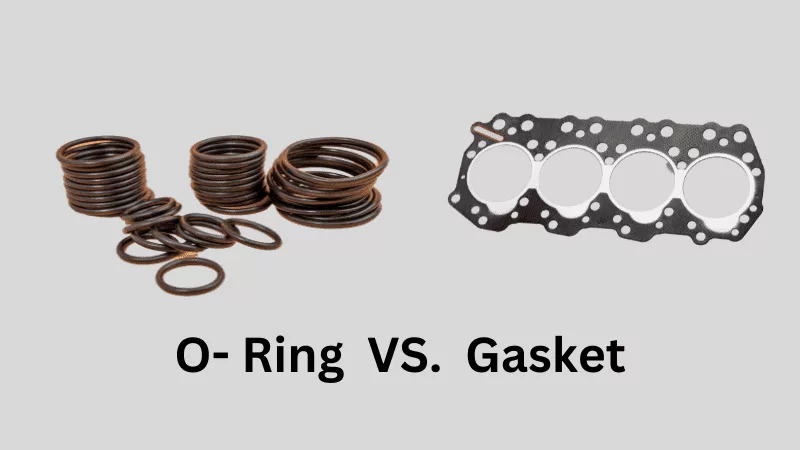
What is an O-ring?
An O-ring is a type of gasket you can use as a mechanical seal. Although it can come in different sizes, thicknesses, or dimensions, the O-ring only has one shape – a donut shape. It’s a circular elastomer piece with a hollow center that you can also refer to as a packing joint.
The purpose of o-rings is to prevent fluid or gas leakage and to create a sealed surface where 2 or more parts meet. It usually sits in a groove where another part will join. When the parts join together, it puts pressure on the O-ring in the grooved part.
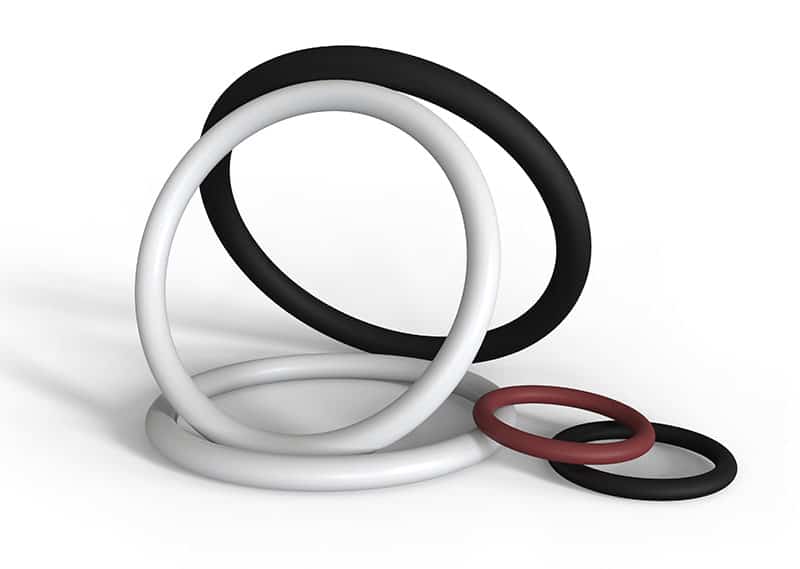
Sometimes referred to as a packing joint or toric joint, the only design distinctions for these circular, hollow-centered, mechanical seals are size, thickness, and dimension. The sealing happens because the pressure on the o-ring causes it to mold itself in the surrounding space.
O-rings are available in different elastomer materials like silicone rubber, nitrile rubber (NBR), and fluoropolymers. To choose the right material, you have to consider the application.
This will also help define the elastomer’s hardness, thickness, size, and other qualities. The bottom line is that it should perform well under the right operational and environmental situations.
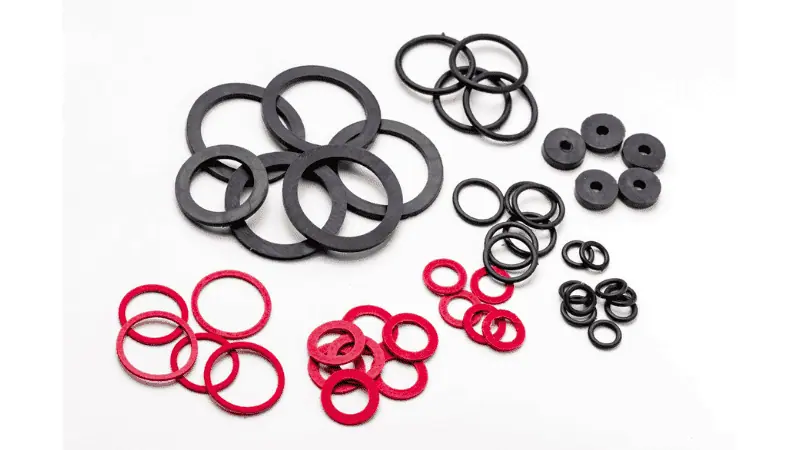
Despite the pressure, the elastomer material of the o-ring allows it to maintain the integrity of its shape. It can withstand pressure of up to 5,000 psi (pounds per square inch). It retains its shape even if there’s an additional vibration from the mechanical device.
This makes the O-ring a very effective sealing product to keep liquids, air, and gas from escaping.
O-rings are used in joints and connections between pipes, hoses, and fittings in hydraulic systems to prevent fluid leakage. Rotating shafts O-rings are used as rotary shaft seals to prevent the leakage of lubricants or contaminants in rotating components like gearboxes and axles.
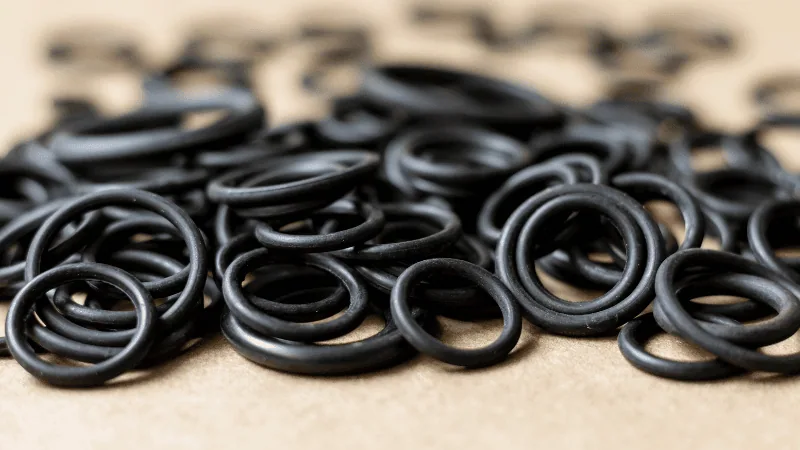
O-rings typically fit into a groove at the interface where two rounded surfaces are joined together. The seals can also be used in high-pressure applications and static or dynamic applications, such as jet engines and automobile engines.
Among the typical applications of o-ring are aerospace and automotive. This includes the following:
- Food containers and processing equipment
- Fuel systems
- HVAC systems (Heating, Ventilation, and Air Conditioning)
- Hydraulics
- Medical and pharmaceutical equipment or devices
- Oil seals for engines and devices
- Pipe joints
Send Your Inquiry Now!
Quality Meets Affordability. Inquire Now for High-Quality Products at Low Volumes.
What is a Gasket?
A gasket is a flat piece of material that sits between two flat surfaces and serves as a mechanical seal designed to provide a liquid-tight seal. But instead of having a looped circular shape, it’s usually a flat material.
The main shape of gaskets is usually circular, too. But it can come in different shapes like rectangles, squares, ovals, triangles, or any other shape to fit complex mating surfaces.
Gaskets usually use elastomers, but they also use various materials like corks, foam, metals, complex polymers, etc.
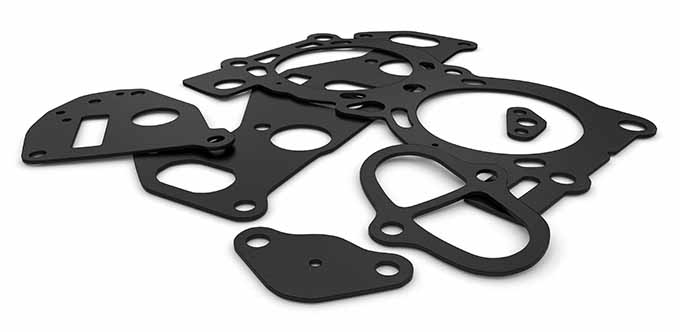
The choice of shape, size, and material will mostly depend on the purpose of the gasket. If you plan to make it sit between the engine block and cylinder head of an automotive engine, you’re better off using a metal gasket.
While gaskets can use hard materials, it’s still essential that it has compression functionality. This means it has to be pliable enough to conform to the complex mating surfaces where it sits.
When using hard materials, the gasket must fit the design specifications. That’s how it can fit between two surfaces to create a liquid-tight seal. This prevents gas or liquid from leaking and contaminating other parts of the mechanical system.
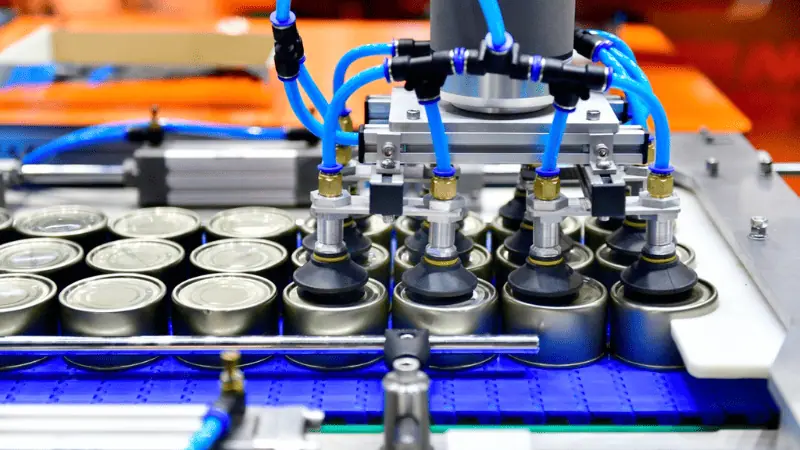
The typical sealing applications of gaskets include the following:
- Aerospace industry
- Automotive and other modes of transportation
- Electronics
- Food and beverage applications
- Electrical motors and devices
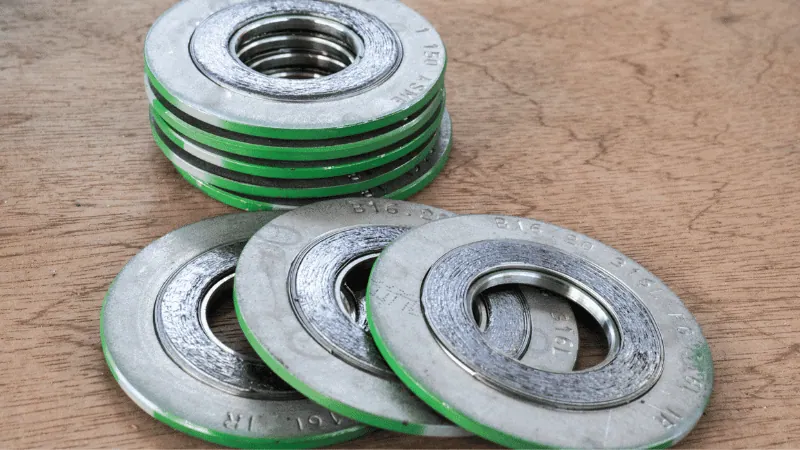
- Handheld communication devices
- Medical devices and equipment
- Paper and pulp
- Power generators and transformers
- Telecommunication devices
Send Your Inquiry Now!
Quality Meets Affordability. Inquire Now for High-Quality Products at Low Volumes.
Main Differences between O-rings and Gaskets
O-rings and gaskets are both used to prevent liquid or gas leaks in machines, motors, and plumbing systems by fitting between two or more parts. While they may seem similar, they are not interchangeable.
The following are specific differences that you should focus on.

These differences will help you identify which of the two is ideal for your application.
- Shape and Appearance: O-rings are circular loops, while gaskets are flat seals. Although all O-rings are a type of gasket, the reverse is not true. Their distinct shapes determine how they fit and function between surfaces.
- Materials: O-rings require flexible materials like rubber. Gaskets, however, can be made from a variety of materials, including metal, cork, foam, or rigid polymers, depending on the application.
- Design: O-rings are limited to a circular shape. Gaskets can be custom-cut into any form, making them adaptable to even the most complex surface designs.
Choosing between Gaskets and O-rings: 2 Key Considerations
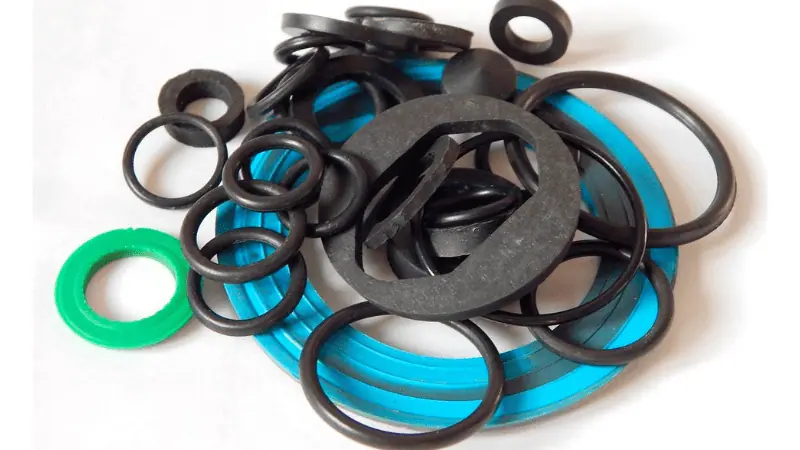
If you want to know which mechanical seal to use, there are 2 essential things you need to consider.
The first is the shape of the seal needed. If the mechanical device’s mating surface has a groove, then O-rings will work best. But if the seal will sit on a flat surface, a gasket is best for the application.
If the mating surface also requires a specific shape, that will tell you if you should go for o-rings and gaskets.
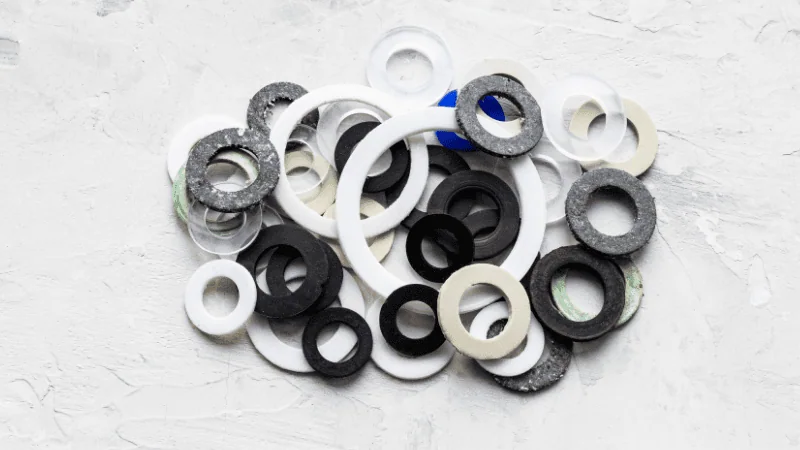
The second consideration is the pressure and temperature that the mechanical seal will deal with. Both gaskets and o-rings can work well in a wide range of temperatures.
However, gaskets can withstand higher temperatures, while o-rings are the best choice for extreme-pressure applications.
Send Your Inquiry Now!
Quality Meets Affordability. Inquire Now for High-Quality Products at Low Volumes.
Conclusion
Gaskets and O-rings are both ideal mechanical seals. Knowing how the material will hold up in certain temperatures or under severe pressure is vital to prevent product failure.
You must know the application first to decide which of the two you can use. For whatever purpose, Hongju Silicone can help you produce the proper rubber mechanical seal that fits your design and requirements.
Get Top-Of-The-Line O-rings And Gaskets From Hongju
As a leading manufacturer and wholesaler in China, Hongju is always dedicated to providing innovative O-rings and gaskets for our customers with excellent service. We only use certified material and we have lots of O-rings and gaskets in stock for standard sizes.
Contact us now to get free samples for your test!